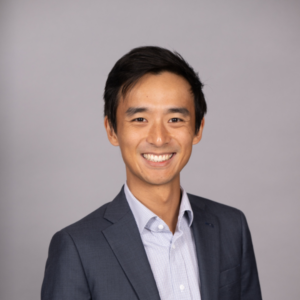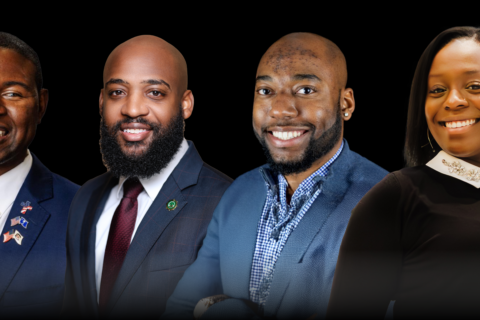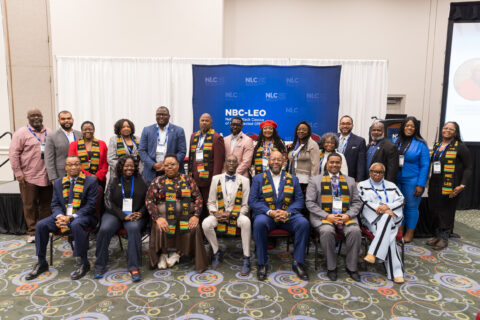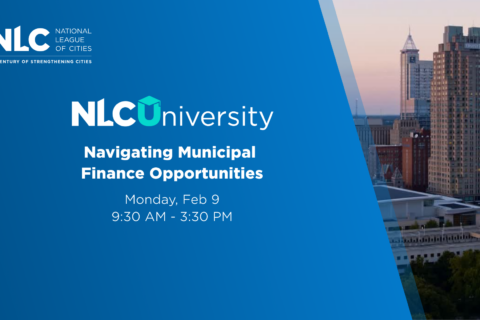For municipal leaders looking to build strong and robust communities, continued and adaptive engagement is key. When Burlington Mayor Emma Mulvaney-Stanak took office in 2024, one of her top priorities was developing a robust and nuanced community engagement strategy. As a growing demographic in Burlington and the surrounding area, the Arabic-speaking immigrant community is vital to the future economic landscape. Beyond economic stability and financial success, the city wanted to go even further to ensure that these new immigrants would thrive within “The Queen City.”
Speaking about the program, Mayor Emma Mulvaney-Stanak proudly shared: “The Arabic Personal Care Assistant (PCA) Plus program was an amazing success. This program leveraged new technologies to support students in learning new skills to fill gaps in the personal care workforce. We’re excited to see how the program will continue to grow while reaching more of Burlington’s immigrant communities.”
Developing the PCA Program
Aiming to reach the Arabic-speaking community, the Community and Economic Development Office (CEDO) approached National League of Cities with an innovative project. Utilizing a $20,000 grant award through the 2024 Advancing Economic Mobility Rapid Grant, the City of Burlington’s project leveraged the power of AI real-time translation and captioning with an in-person instructor to assist a group of students to gain their Personal Care Assistant (PCA) certifications.
“For quite a while, I have been desirous of providing workforce development and job training opportunities for Burlington’s immigrant and refugee communities who face English language barriers and therefore are not able to receive training in their native language,” said former CEDO Assistant Director for Community Engagement, Neighborhoods and Workforce Development Gillian Nanton.
This program expanded off two existing English-language training programs: the Licensed Nursing Assistant (LNA) and Personal Care Assistant (PCA) Plus program. For this novel program, the PCA-certified trainer would deliver the training in English. Then, the AI real-time translation and captioning would directly translate the phrases into Arabic on a presentation screen and students’ cell phones. At the same time, an Arabic-speaking community liaison would be present at each training session to provide more nuanced translations or clarifications to specific medical words or phrases.
“Delivering PCA training in a language other than English, in this case to Arabic-speaking students, had never been done before in Vermont,” said Nanton. “But I felt pretty confident that with the help of AI technology and the Arabic-speaking community liaison, this innovative approach could work. And it did.”
Once the curriculum was settled, CEDO worked with a community liaison to spread the word about the brand-new program. As word of the program spread throughout the community, so did excitement for it.
“Once the community members learned about the training opportunity, they just grabbed it,” said Mona Tolba, the Arabic-speaking community liaison, who is fluent in English and monitored the training program. “The students embraced the training and were very engaged and since its completion, I’ve been inundated with questions as to whether a new similar training opportunity will be offered.”
Program Successes
Through the six-week training course, the five participants, all of whom were women, learned the necessary linguistic and in-person skills to pass their Personal Care Assistant certifications. Each of the women who completed the course received their credentials with one receiving a perfect score on the assessment.
During the course, an unexpected benefit emerged: the women coalesced into a small, tight-knit community. The evening lessons would be complemented by the presence of homemade food to be shared amongst the students, trainer and cultural liaison.
“Their dedication and support for one another was inspiring,” said PCA Plus Instructor Wendy Bombard. “They formed close bonds, carpooling, studying and cheering each other on. The program ended with a beautiful feast, celebrating not only their success but the strong connections they had built with one another.”
Not only were these women empowered to learn job skills that they could use to secure a career, but they were also able to find a group of like-minded individuals who wanted to help their community.
What’s Next?
Alongside the training program, CEDO worked with local healthcare providers to identify job placements for the participants. In addition, CEDO staff also identified continuing learning opportunities for any of the women interested in pursuing their Licensed Nursing Assistant (LNA) certifications. By providing resources and guidance for continued learning, CEDO helped the graduates explore career advancement possibilities within the healthcare field. The women can provide much-needed staff for the local healthcare sector and give back to their community.
“Since obtaining my PCA Plus certificate, I have received more than five opportunities to work in the health care field,” one PCA Plus graduate said. “I really wanted to work, but I will have to wait until I give birth. Before the training, I didn’t have the skills, but now I do and I’m looking forward to achieving my dreams.”
For local leaders who want to pursue similar programs, the success of the PCA Plus training program to Arabic-speaking Burlington residents offers an innovative approach to training Burlington’s immigrant and refugee populations.
“I am confident we could deliver similar trainings in other languages, providing opportunities for Burlington’s immigrant and refugee communities to enter the labor market and help fill job gaps, particularly in health care, as well as advancing their economic mobility,” said CEDO Director Brian Pine.
As the economic landscape continues to shift, the needs of residents will shift as well. With more bilingual training and community engagements, residents are more likely to receive the right services and care they need to thrive in their communities. Through deliberate and community-focused engagement, local leaders can identify areas of improvement, growth and economic opportunity.
Beyond Burlington to Chattanooga
According to Chattanooga Mayor Tim Kelly, creating economic mobility and opportunity begins at the local level. Discover the “secret sauce” he used to create a responsive local government to help all residents thrive.








